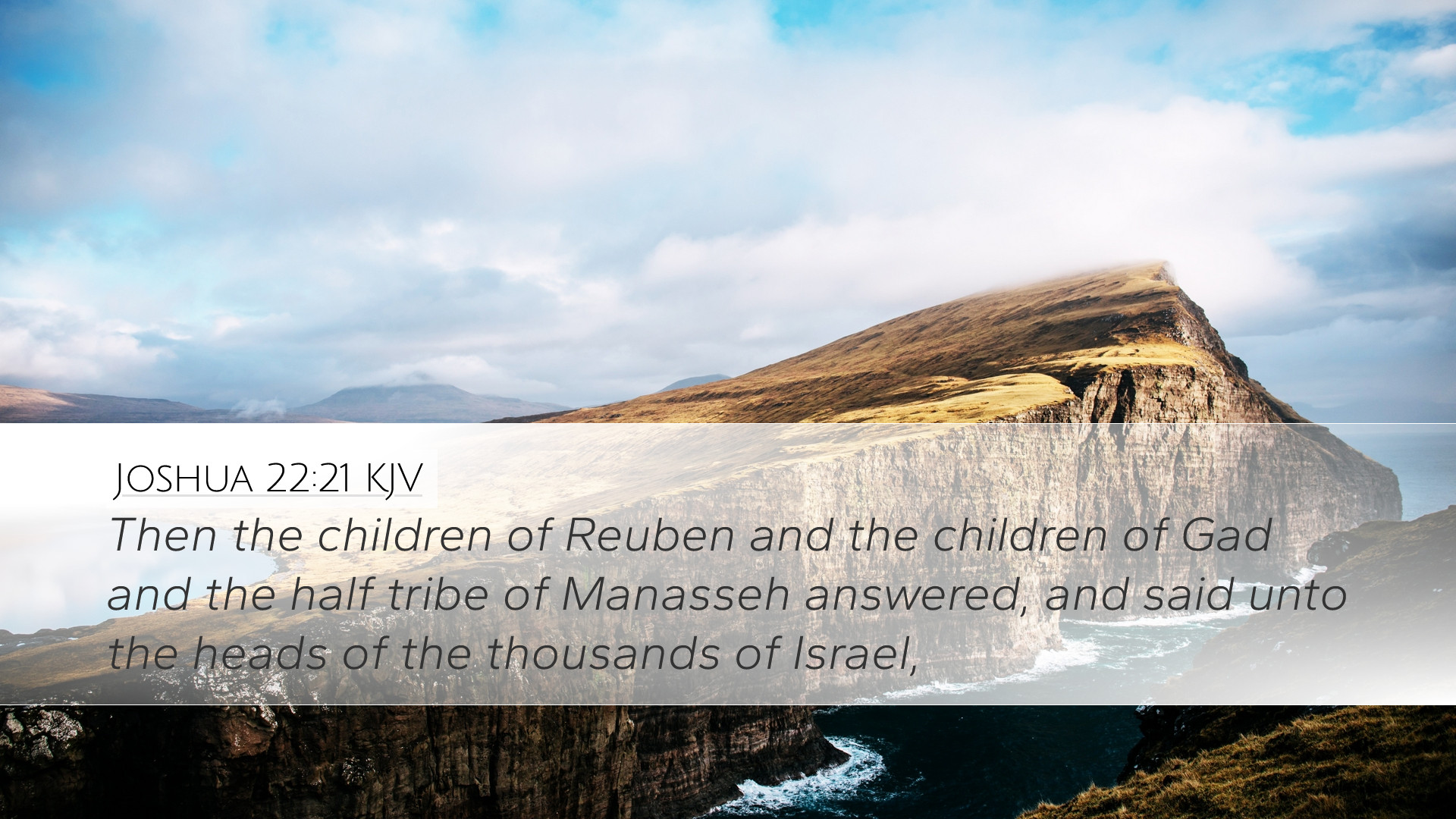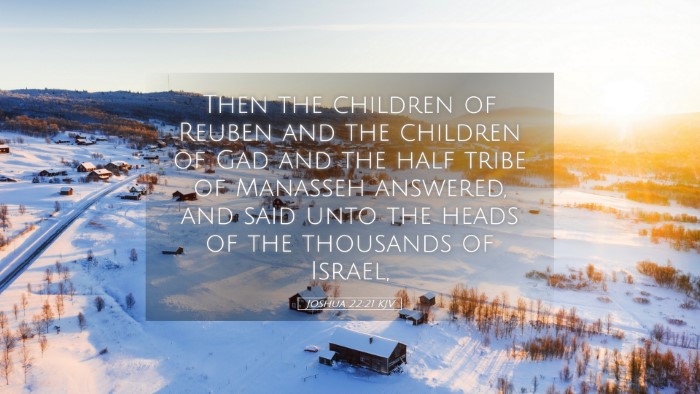Commentary on Joshua 22:21
Joshua 22:21 presents a pivotal moment in the narrative of the Israelite conquest and settlement of Canaan, revealing divine justice, the importance of covenant fidelity, and the consequences of misunderstanding. This verse serves as a focal point whereby the Israelites address their brethren from the tribes of Reuben, Gad, and the half-tribe of Manasseh regarding their commitment to the Law of Moses.
Text of Joshua 22:21
“Then the children of Reuben and the children of Gad and the half tribe of Manasseh answered, and said unto the heads of the thousands of Israel.”
Contextual Overview
The preceding chapters detail the successful settlement of tribes on the east side of the Jordan River. Notably, the tribes of Reuben, Gad, and the half-tribe of Manasseh, having fulfilled their promise to aid in the conquest of Canaan, received their lands. However, their decision to settle outside the promised land raised suspicions among the other Israelite tribes, leading to potential conflict over loyalty to the covenant with God.
Thematic Insights
- Covenant Faithfulness: The exchange between the tribes demonstrates the critical nature of covenant fidelity. Commentaries by Matthew Henry emphasize that faithfulness to God's command is essential for continued blessing and peace within the community.
- Unity and Division: The narrative serves as a test of unity among the tribes of Israel. According to Albert Barnes, the Israelites' suspicion points to a deeper concern about division and shared commitment to the worship of Yahweh.
- Misunderstanding and Communication: Adam Clarke highlights the vital role of communication in preventing conflict. The premature accusation made by the other tribes illustrates how misunderstandings can lead to strife; therefore, dialogue is essential for resolving potential issues before they escalate.
Verse Interpretation
This verse opens a dialogue where the accused tribes defend their actions, showcasing the importance of clarity in relationships and responsibilities among God's people.
Matthew Henry reflects that the children of Reuben and Gad negate the notions of disloyalty and reiterate their commitment to the collective mission of Israel under God's covenant. This response illustrates a model of rectifying relationships with integrity.
Applications for Today's Believers
- Commitment to Community: Believers are called to uphold fidelity not only to God but within their communal relationships. As we grow in faith, we must seek to navigate differences and assumptions with grace.
- Importance of Communication: The proactive approach taken by the tribes in addressing potential misunderstanding serves as a template for modern church discussions. Active listening and openness are critical in resolving conflicts.
- Faithfulness Amidst Differing Perspectives: The tribes demonstrate that geographical and cultural differences need not equate to spiritual disloyalty. The Body of Christ today consists of diverse members yet is called to unity in Christ and His mission.
Conclusion
Joshua 22:21 and its surrounding narrative enrich our understanding of community dynamics, covenant responsibility, and the vital need for clear communication in maintaining unity among God's people. The historical context and theological insights gleaned from respected public domain commentaries equip pastors, students, and scholars with profound reflections on living faithfully in a diverse and sometimes contentious environment.


